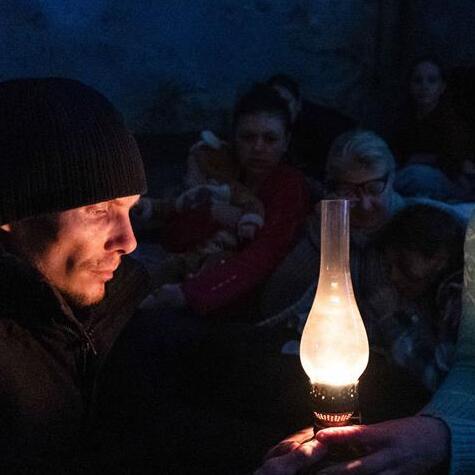
From a Best International Film award to an Oscar nomination, Ukraine has been winning film critics’ hearts through portrayals of life during the Russo-Ukrainian war. The past ten years in Ukraine have been brought to life on the big screen through stories full of the painful realities of war mixed with the lives of everyday people. Ukraine’s historical roots and the country’s evolving national identity are also common themes. One of the characteristics of Ukrainian wartime cinematography has been its gravitation towards the documentary and historical drama genres.
Whether drawing on historical events from 80-year-old national archives or portraying the life of a typical Ukrainian family in a front-line city, these films offer audiences a unique view into the development of the Ukrainian nation. For example, contemporary Ukrainian documentary directors such as Iryna Tsilyk (The Earth is Blue as an Orange, 2020) and Valentyn Vasyanovych (Atlantis, 2019) aim to expose the connection between understanding one’s roots and the formation of national identity. The raw, realistic moments of peoples’ lives captured and depicted in these films, sometimes without any post-production, provide an immersive experience that profoundly connects the audience with the directors.
In this list, we outline the most remarkable Ukrainian documentaries and dramas made between 2014-2024. They highlight connections between the war and Ukraine’s historical heritage, between individual experience and national formation, while centering people’s lives against the backdrop of war.
20 Days in Mariupol, 2023, directed by Mstyslav Chernov
Where to watch: Amazon Prime
“Someone once told me that wars don’t start from explosions. They start with silence,” says the voiceover in 20 Days in Mariupol. This soul-piercing documentary by Mstyslav Chernov, a Ukrainian photojournalist and Associated Press war correspondent, shows the first days of Mariupol being bombed, destroyed, and seized by the Russian army during its full-scale invasion of Ukraine in 2022. Having covered numerous wars and political conflicts, including the Revolution of Dignity in Ukraine and the war in Syria, Chernov decided to go to Mariupol to cover the Russian army’s siege and destruction of the city.
Trapped in occupied Mariupol, Chernov and a team of Ukrainian journalists faced threats of death and a humanitarian disaster while filming the unfolding events. They remained in the city to capture moments of people’s daily lives maimed by the Russian forces’ atrocities. The despair, resilience, and courage captured by the team are profoundly moving.
In 2023 the film won the World Cinema Audience Award: Documentary at the Sundance Film Festival. It secured 15 more major awards, including Most Valuable Documentary of the Year from the Cinema for Peace Foundation and the Greg Gund Memorial Standing Up Award at the Cleveland International Film Festival. As of February 2024, 20 Days in Mariupol is nominated for an Oscar and received Bafta Awards as Best Documentary.
Reflection, 2021, directed by Valentyn Vasyanovych
Where to watch: Amazon Prime
Nominated for the Golden Lion award at the Venice Film Festival, this drama was directed by Oscar-nominated Valentyn Vasyanovych, one of Ukraine’s most famous directors. Reflection tells the story of a Ukrainian military surgeon named Serhii Melnyk who is captured by Russian military forces. During his time in captivity, Serhii endures endless torture and suffers through different stages of mental and physical abuse all while witnessing the dehumanizing treatment of other Ukrainian prisoners of war. After his release from captivity as part of a prisoner exchange, Serhii struggles with readjusting to normal life. To fight his post-traumatic stress disorder (PTSD), he decides to mend relations with his ex-wife and 12-year-old daughter Polina, who is trying to cope with the death of a loved one in the war. As Serhii spends more time with Polina, aiding in her struggle with the trauma of loss, he finds himself on a path to healing, despite the lingering shadows of war.
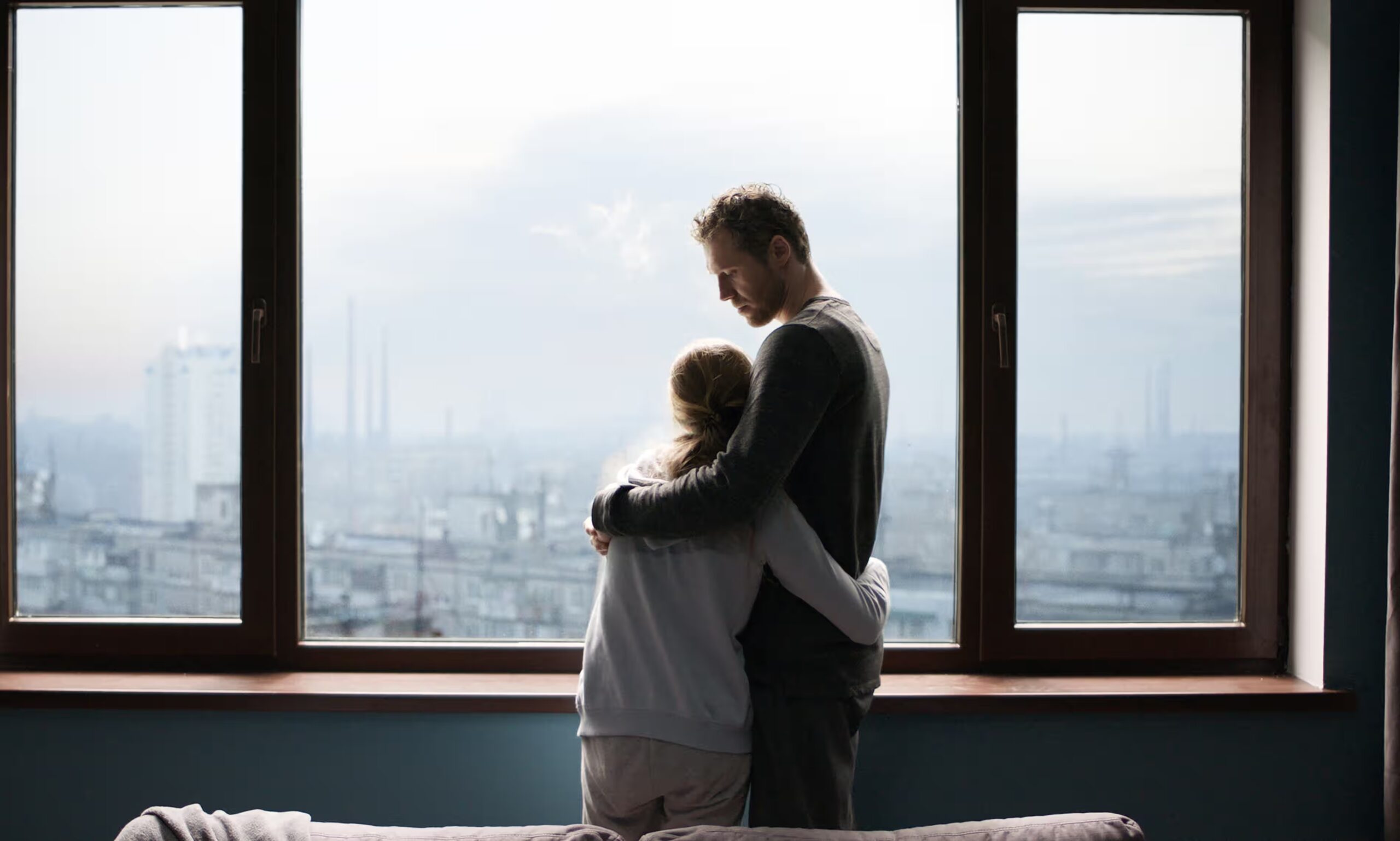
The title of the film alludes to the main character’s life after his release. Traumatic memories from his time in captivity reflect into his post-prison daily life. Through delicately drawn parallels between Serhii’s time in prison and his life post-release, scenes of his interactions with the outside world, and substantive dialogues, the audience becomes deeply immersed into the essence of the film.
Alisa in Warland, 2016, directed by Alisa Kovalenko and Liubov Durakova
Where to watch: Takflix
Alisa Kovalenko experienced the first days of the Revolution of Dignity as a 26-year-old cinema student with a camera in her hands. “I was there and I wanted to catch every moment on camera. It was a fight for my country, my freedom,” says Alisa on camera against a backdrop of fire and explosions on the Maidan. She continued carving her path as a documentary filmmaker during Russia’s invasion of the east of Ukraine in 2014, filming some of the most intense battles and documenting her time in captivity.
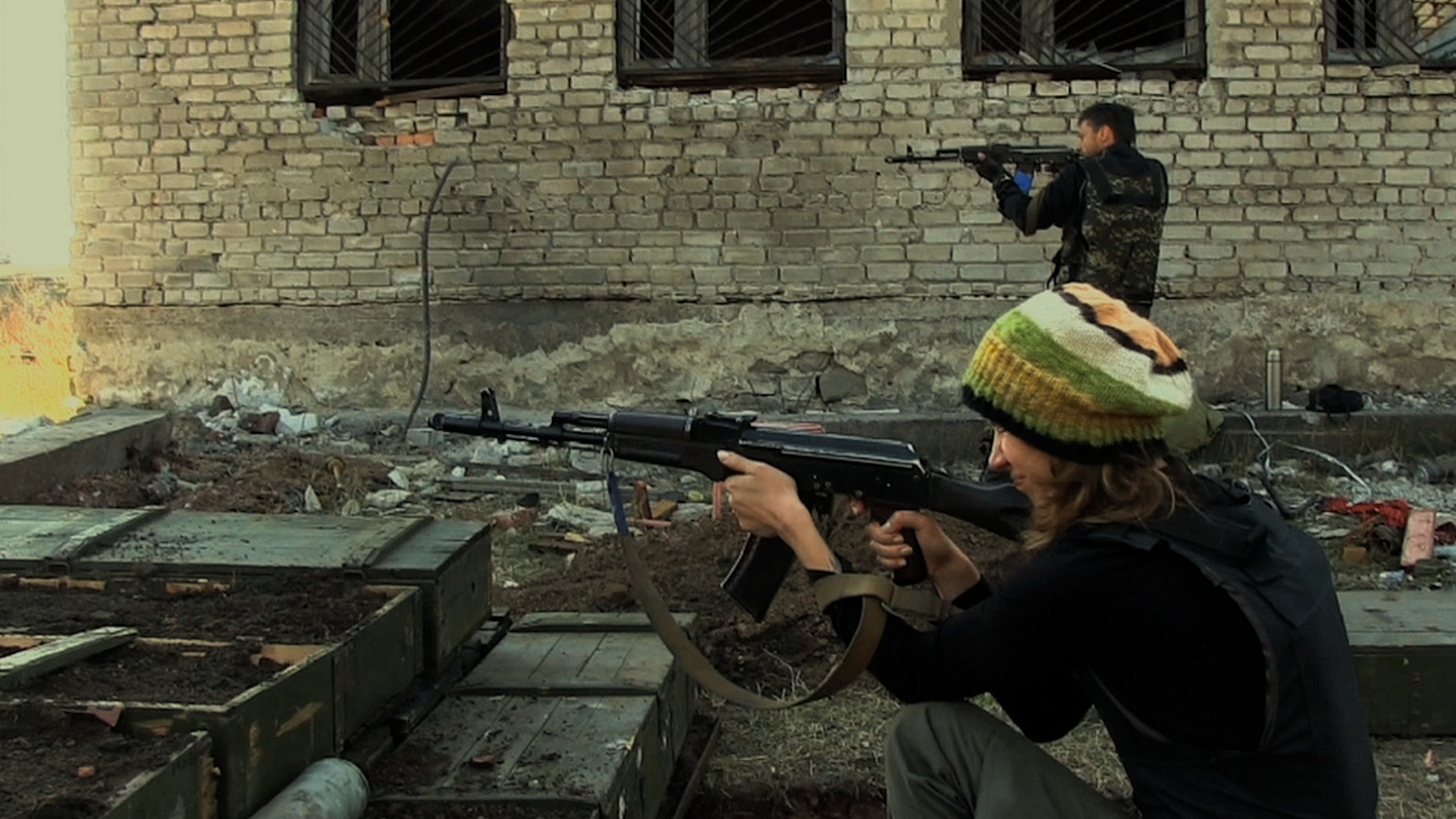
Alisa’s film is a diary. In addition to chronicling the political events around her, it invites the viewer into her reflections on the forthcoming changes in her country, their impact on people, and her willingness to contribute to Ukraine’s fight for freedom and a better future. The film transitions from segments of Alisa teaching her favourite song on the university campus to a scene where she is sitting beside the body of an armoured vehicle, a meal in her hands and a gun lying next to her. When asked by soldiers why a documentary filmmaker needs a gun, she replies, “To protect my country.”
Owing to its unedited approach and original depictions of the crossroads between war and ordinary life, Alisa in Warland won the best documentary award at the Festival de cinéma et de Droits de l’homme de Paris & Barcelone in Paris.
The Cacophony of Donbas, 2018, directed by Ihor Minaev
Where to watch: Takflix
The title of this documentary is a reference to the 1930s film Enthusiasm. The Symphony of Donbas by Ukrainian director Dzyga Vertov. The Soviet authorities commissioned Vertov’s film as propaganda to celebrate industrialisation. However, it received international acclaim as one of the most experimental movies of its time. After some time, Soviet authorities hid it from the public for being too avant-garde.
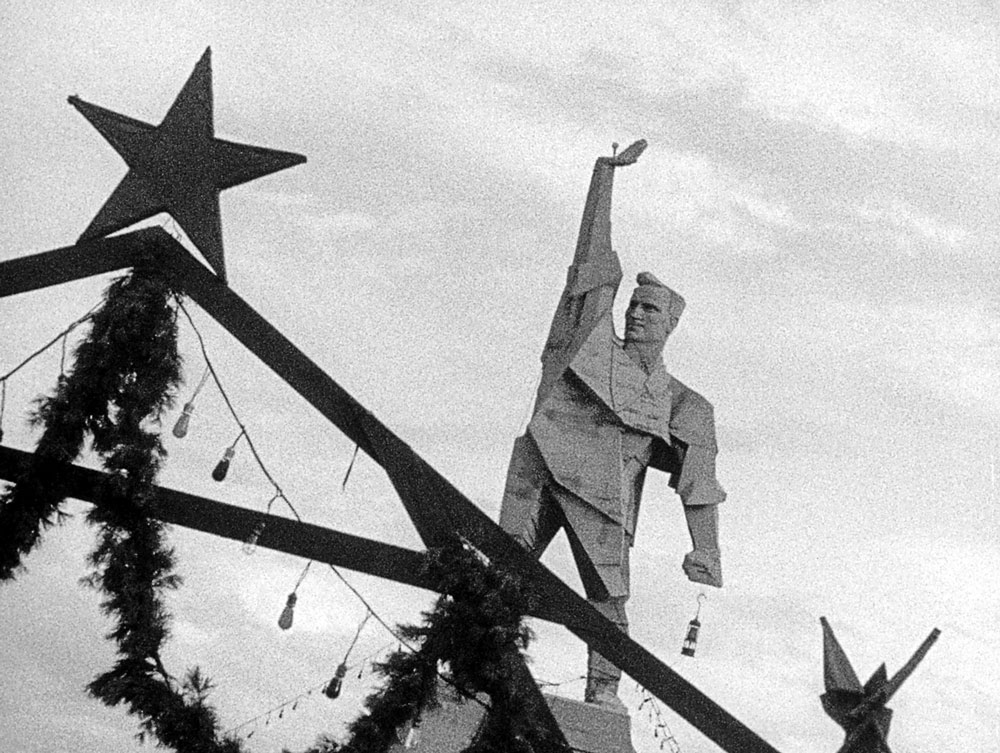
A still from Enthusiasm. The Symphony of Donbas
A modern reference to Vertov’s piece, The Cacophony of Donbas was made by renowned Ukrainian and French film director Ihor Minaev. It reveals the true story behind the myth of “Russian Donbas”. Minaev weaves events from the region’s past with its present through scenes of the difficult working conditions faced by miners, their tragic deaths that were hidden by Soviet authorities, the atrocities of Russian occupation, and the evolution of the region in general.
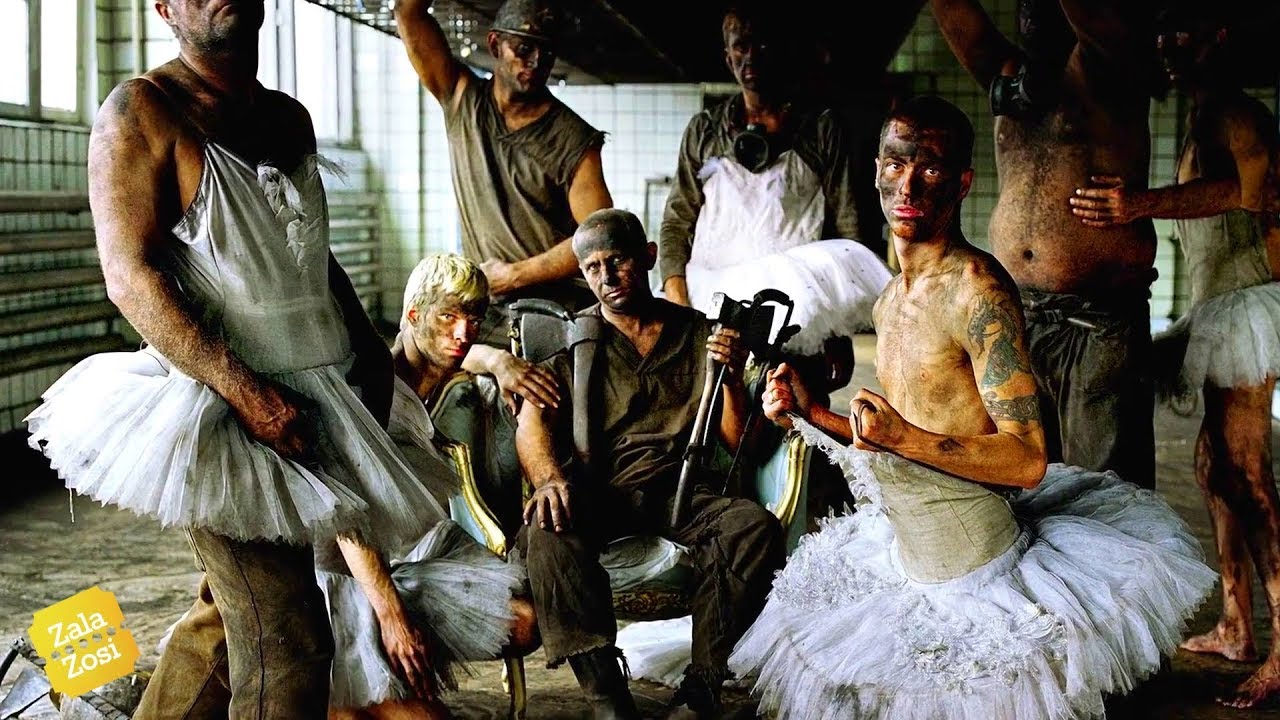
The film consists of two parts showing historical and contemporary footage. Segments include 1930s Soviet propaganda clips of life in “Donbas” (the correct historical name of the region is Donechchyna – ed.), scenes from the Swan Lake ballet as a reference to cultural propaganda, archive videos from witnesses of Russian occupation, Russian musical clips, and stories from occupation victims. The historical contrast allows the audience to trace the connection between particular events, understanding their origins and outcomes. At the same time, the curated compilation of raw footage underscores the film’s title. This is an assortment of stories without an organic sequence, presenting instead an auditory and visual cacophony that leaves the analysis up to the viewers.
After its premiere at the Docudays UA Film Festival in Ukraine, The Cacophony of Donbas gained a lot of attention from both Ukrainian audiences and the French press. It was called a “fight against Russian propaganda”. Shortly after, in 2019, it won the Best Documentary Film prize at the Mariupol Film Festival.
The Earth Is Blue as an Orange, 2020, directed by Iryna Tsilyk
Where to watch: Takflix
This film by Ukrainian director Iryna Tsilyk tells the story of a family living in the front-line war zone in Ukraine’s east. It has been featured at more than 100 international film festivals, including the renowned Berlin International Film Festival and the International Documentary Film Festival Amsterdam.
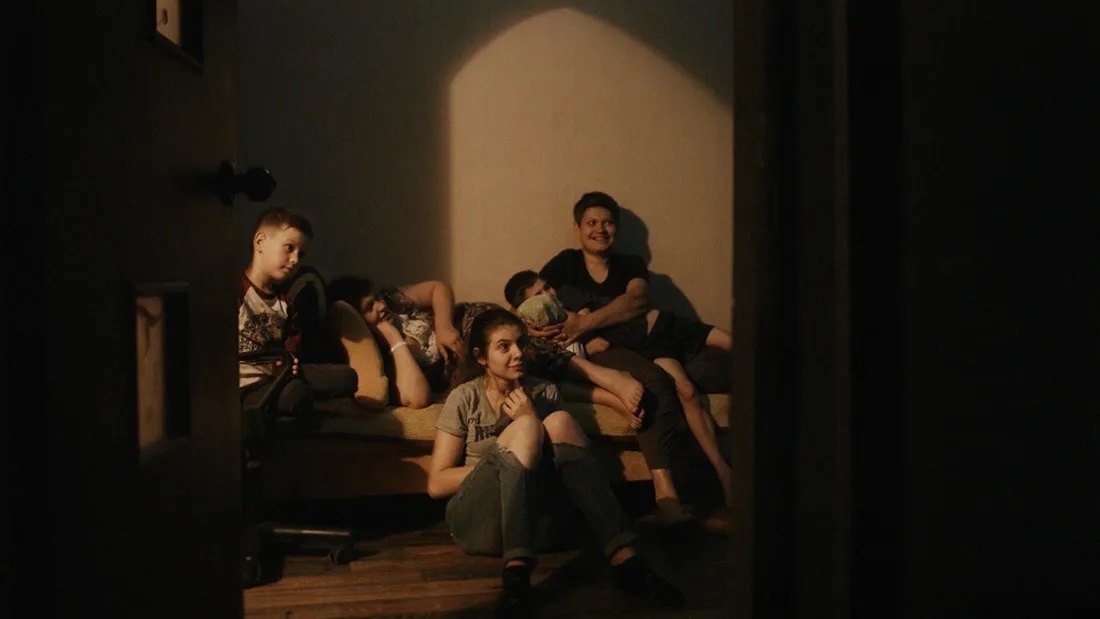
Hanna, a single mother of four, is living in a formerly peaceful place that has been largely deserted since becoming the hottest war zone in the east of Ukraine. Despite endless explosions and the stress of living in a constant state of war, families surprisingly manage to maintain their homes as safe places filled with warmth, family bonds, intimacy, and light. Iryna Tsilyk’s work explores how film directors can expose the inner experiences of war through their cameras. It delves past the explosions and death to examine ordinary people’s resilience and the rays of human life that break through the despair and horrors of war.
In addition to receiving a plethora of positive reviews, the film has won 24 different film awards, including the Directing Award: World Cinema Documentary at the 2020 Sundance Film Festival, the Best Cinematography award of 2020 at the International Documentary Association Awards, and the Documentary Competition Grand Jury Prize at the Seattle International Film Festival in 2021.
Atlantis, 2019, directed by Valentyn Vasyanovych
Where to watch: Takflix
Another remarkable dystopian art piece by Valentyn Vasyanovych, Atlantis focuses on the experiences of protagonist Serhii after the end of the war. Diverging from the director’s earlier mentioned film Reflection, Atlantis is set in a post-apocalyptic future, specifically in 2025, a year after Ukraine’s victory. Serhii is experiencing post-traumatic stress disorder while trying to rebuild his life in the east of Ukraine. Throughout his journey, he meets people whose actions and lives will determine the direction of his personal life. From his coworker Ivan’s suicide in a smelter to a meeting with Kateryna, a volunteer with an organization that exhumes and identifies war casualties, Serhii is faced with the question of why he chose to remain in a devastated and largely forsaken place.
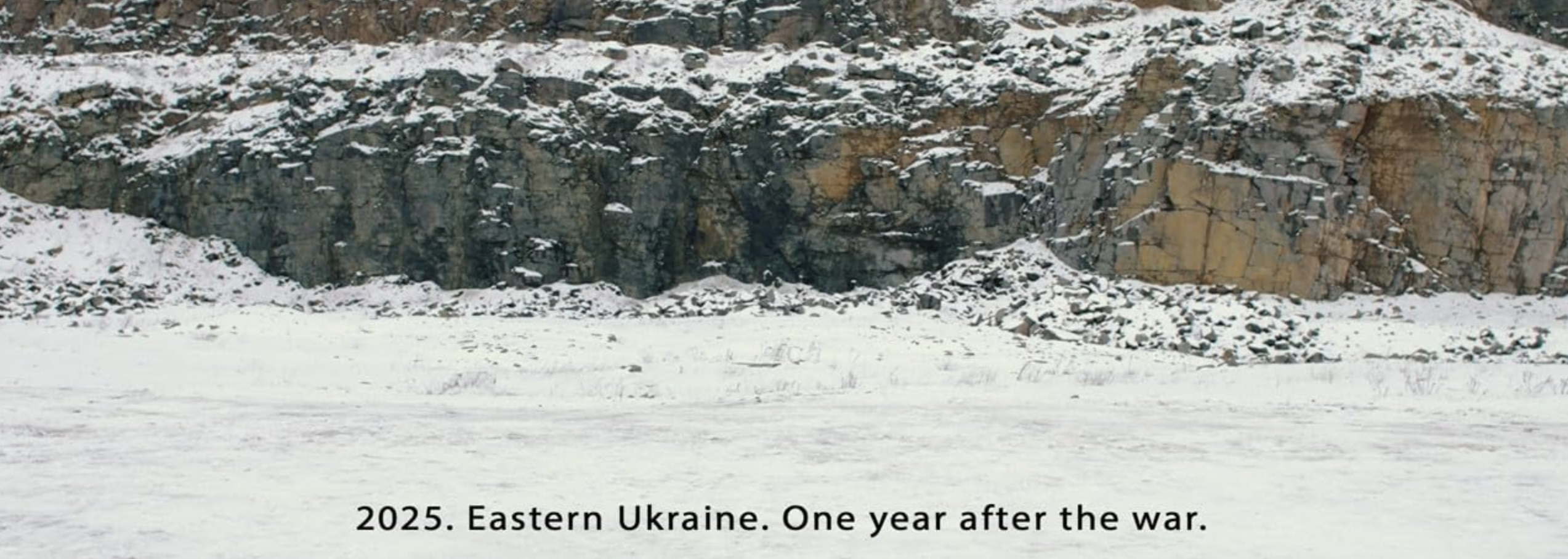
One of the most unusual features of this film is its casting of non-professional actors. The decision to cast individuals who have lived through the war themselves allows the audience to feel the characters’ genuine emotions more clearly. Serhii was played by former Ukrainian spy Andrii Rymaruk, while Kateryna’s role was played by paramedic Liudmyla Bileka.
In addition to gaining recognition from film critics around the world and winning the Best Film award in the Horizon section of the 76th Venice International Film Festival, Atlantis received positive reviews in The New York Times, The Los Angeles Times, and The Wall Street Journal from critics such as Joe Morgenstern and Glenn Kenny.
Homeward, 2019, directed by Nariman Aliev
Where to watch: Takflix
This debut film by Nariman Aliev, a Ukrainian producer and screenwriter of Crimean Tatar origin, gives insight into the Russo-Ukrainian war through the story of a Crimean family. The narrative follows Mustafa (played by Akhtem Seitablaev), a father mourning the loss of one of his sons, Nazim, who was killed in a battle in the east of Ukraine. Mustafa embarks on a journey from Crimea to Kyiv to bring his son’s body back to Crimea and bury him according to Muslim traditions. He also hopes to persuade his younger son, journalism student Alim, to leave Kyiv and return to Crimea. WhenAlim refuses to do so, heated arguments between son and father ensue.
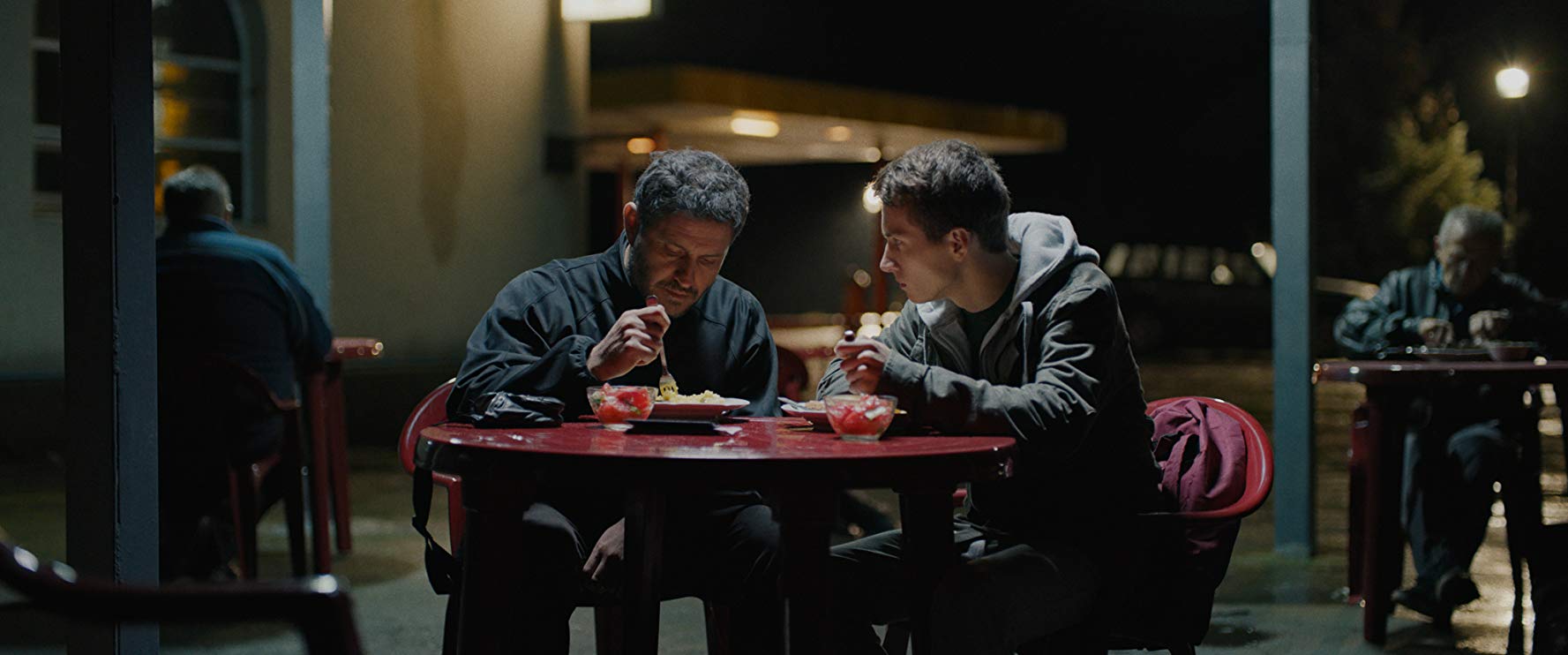
Homeward is enriched with profound dialogues that explore themes such as family and traditional values, returning to one’s roots, the maturation of youth, and the older generation’s reassessment of the meaning of life. The backdrop of war prompts the main characters to look at life from a different perspective. It causes two different generations, each with its own set of values, to collide on a journey that symbolises the path of life and finding a deeper understanding of one’s origins.
Stronger than Arms, 2014, directed by Yulia Hontaruk, Roman Liubyi, and Ivan Sautkin
Where to watch: YouTube (English subtitles added)
This documentary by the Babylon Documentary Film Association chronicles Ukraine’s political and social transformation from the Revolution of Dignity to the Battle of Donetsk Airport. Moving beyond simply portraying battles and protests, it features interviews with participants who share their opinions and personal motives for fighting. Despite having different backgrounds and life experiences, they share a common sense of fighting “for a better future, our country, and our children”.
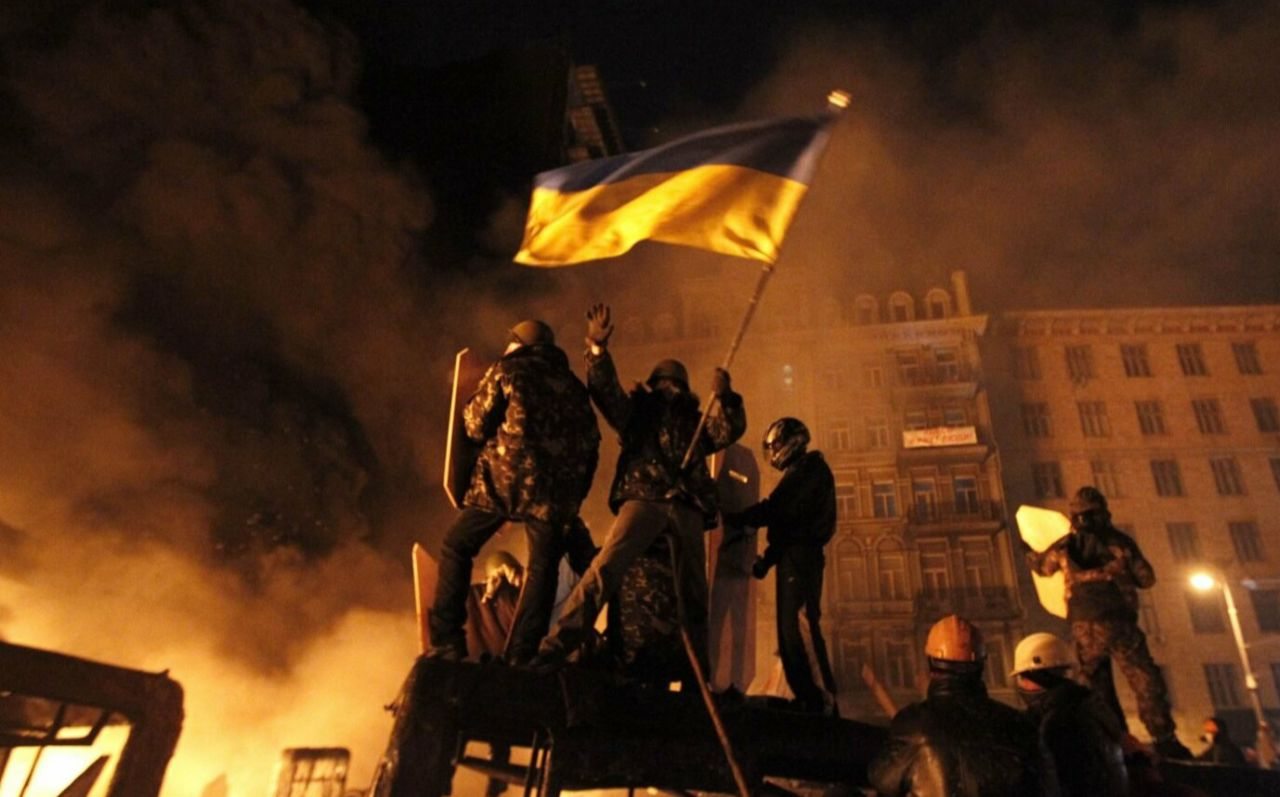
No Obvious Signs, 2018, directed by Alina Gorlova
Where to watch: YouTube (English subtitles added)
One of the few documentaries dedicated to the importance of women’s post-war mental health, No Obvious Signs by Alina Gorlova presents the daily life of Ukrainian Army Major Oksana Yakubova.
The film serves as Oksana’s diary, chronicling her health treatments that reveal her emotions, memories, and thoughts on her family and events in the war, including the deaths of her colleagues and loved ones. Her personal journey is the main plot of the film, with the war as the background of the whole story.
Life to the Limit, 2022, directed by Pavlo Peleshok and Yuriy Ivanyshyn
Where to watch: Takflix
This documentary by war veterans Pavlo Peleshok and Yuriy Ivanyshyn is the only film that exposes the events of the whole war from 2014 to 2022. From the Revolution of Dignity to the fiercest battles in the east of Ukraine, the film consists of the experiences that the veterans managed to record.
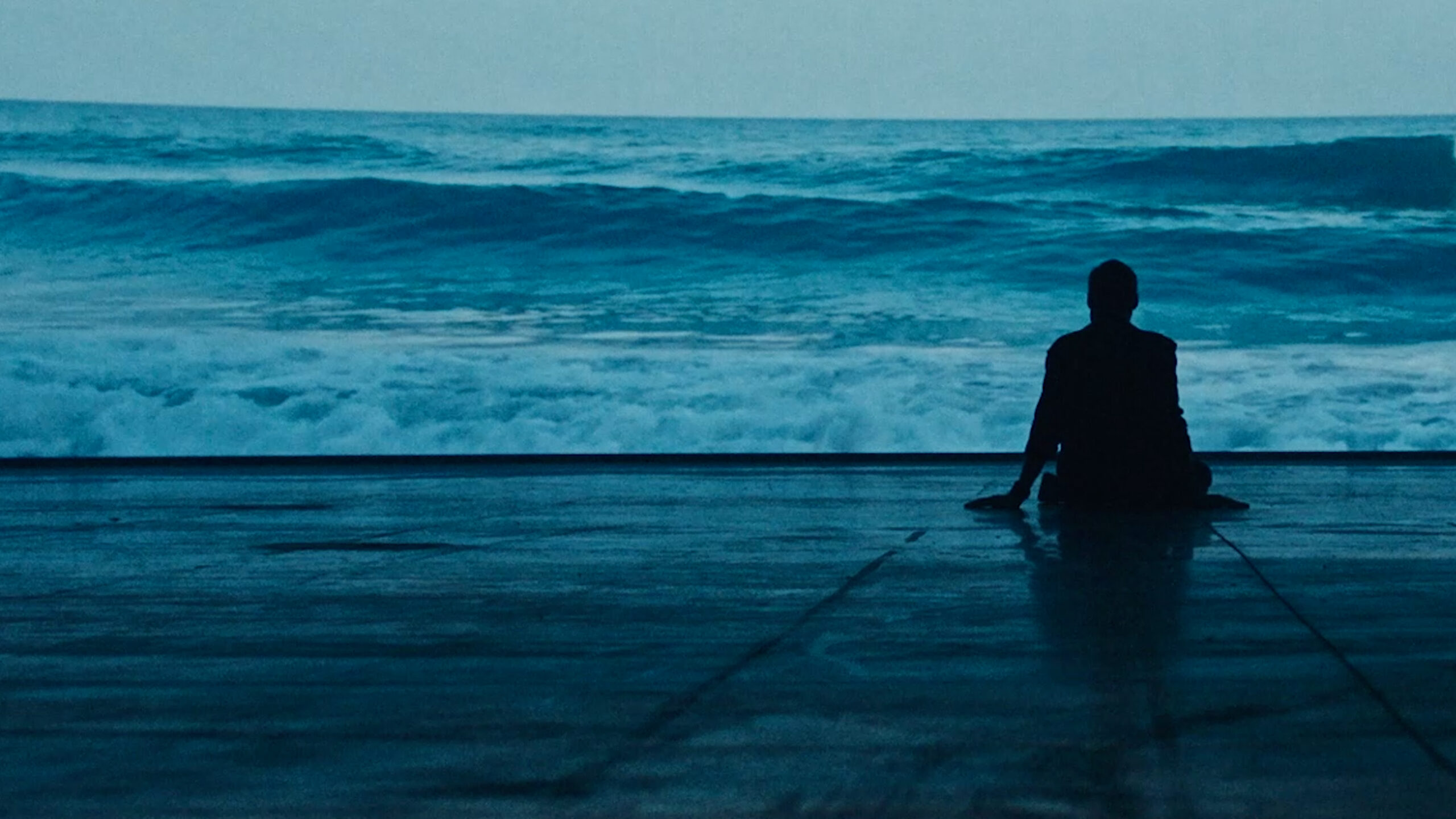
It adopts a chronological, diary-style format along with delicately inserted scenes of tender family moments. This approach helps the viewer understand the country’s political and social transformation, highlighting the challenges faced by Ukrainian society over ten years of war.
Butterfly Vision, 2022, directed by Maksym Nakonechnyi
Where to watch: Amazon Prime
Vividly exposing the mental health struggles faced by women veterans, Butterfly Vision is an emotional and insightful debut by Maksym Nakonechnyi, a rising star in the Ukrainian film industry.
The protagonist, a young woman named Lilia, is an air scout with the call sign “Butterfly” who has just returned from Russian captivity. Post-captivity life challenges Lilia, transforming her relationships with her family, friends, and partner. A pivotal moment in Lilia’s journey is the discovery of her pregnancy, a result of sexual abuse during her captivity.
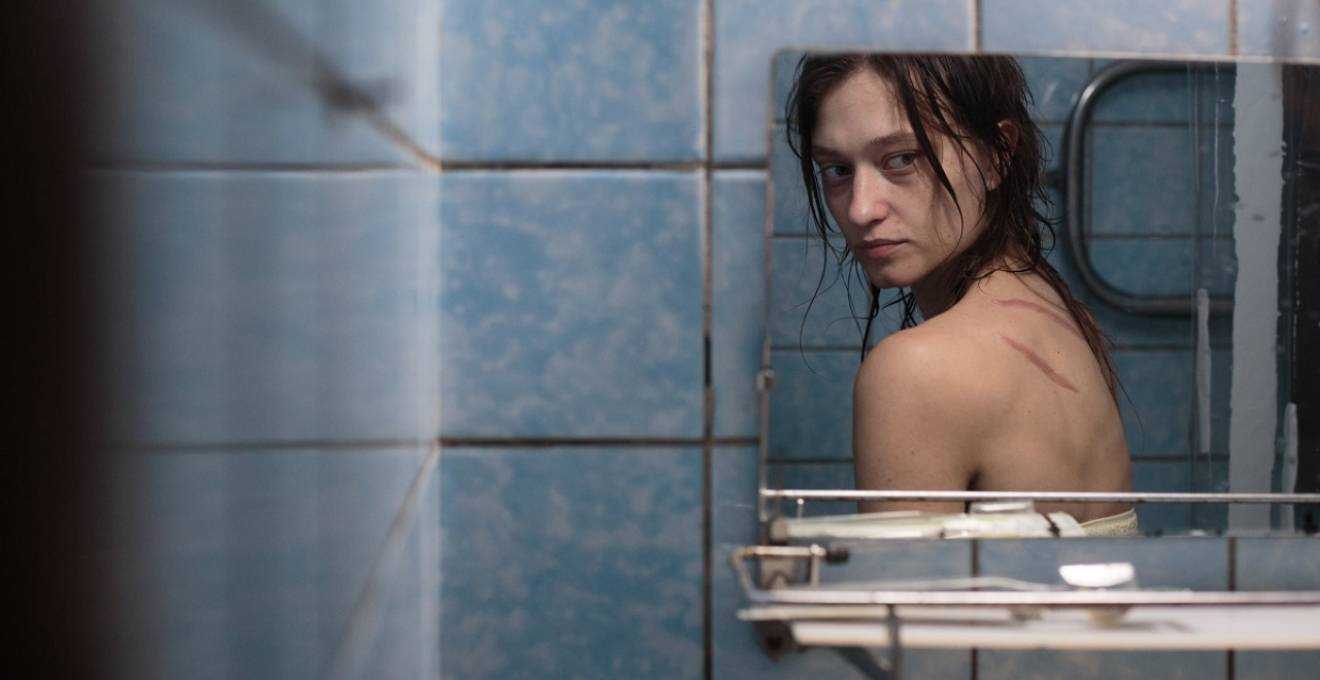
At first glance, Butterfly Vision focuses on the trauma that follows every war veteran. However, Lilia’s story also addresses often taboo topics such as sexual abuse and abortion. She is desperately seeking support as she adapts to her new life, but she faces a lack of understanding from her family members and her husband, Toha. Her relatives’ reaction to her sexual abuse and trauma reflect society’s often-problematic reactions to these topics.
At the Cannes Film festival, Butterfly Vision’s production team accompanied the film’s presentation with the sound of air raid sirens and posters that read “Russian kill Ukrainians. Do you find it offensive and disturbing to talk about this genocide?”
Breaking Point: The War For Democracy in Ukraine, 2017, directed by Mark Jonathan Harris and Oles Sanin
Where to watch: Amazon Prime
A thrilling documentary, Breaking Point: The War For Democracy in Ukraine is a collaboration between American documentary filmmaker and three-time Oscar winner Mark Jonathan Harris and Oles Sanin, director of “The Guide” (2014).
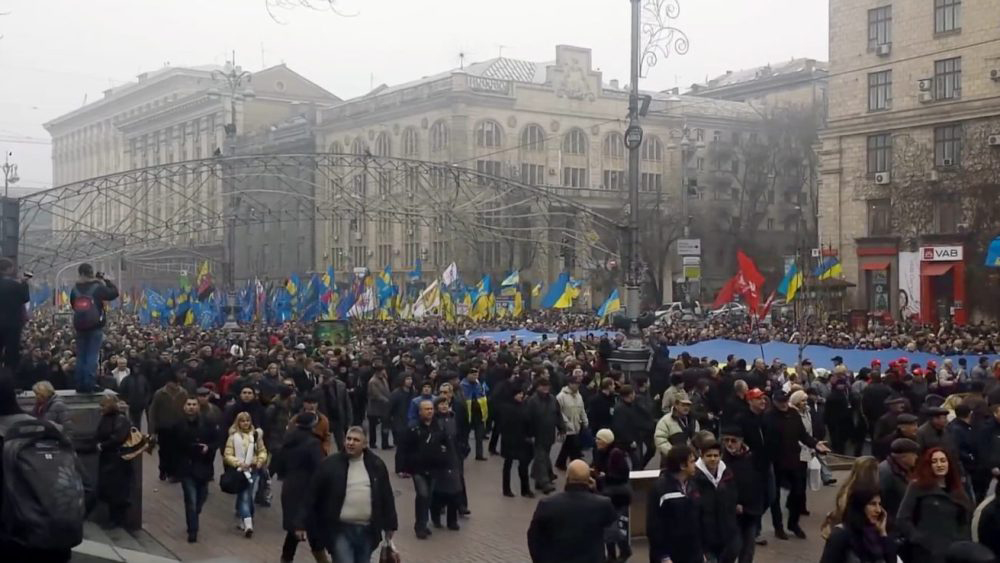
The film comprises 600 minutes of chronological footage covering the Revolution of Dignity, Russia’s invasion of Crimea, and the start of the Russo-Ukrainian war. It features 86 witness accounts and provides deep insights into the formation of Ukrainian society against the backdrop of these events.
Breaking Point received special recognition at the Et Cultura festival in the United States, where it won an award for best documentary film.

